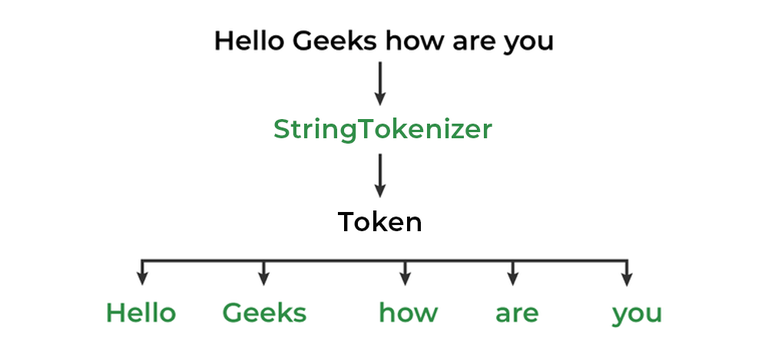Why Are Strings Immutable in Java? Safety And Security and Efficiency Benefits
Why Are Strings Immutable in Java? Safety And Security and Efficiency Benefits
Blog Article
What Is Immutable Strings and Just How It Functions
In the world of shows, understanding the concept of unalterable strings is paramount for creating durable and safe applications. Immutable strings refer to strings that can not be changed after they are produced, guaranteeing information stability and predictability within the code. This essential concept plays an important function in various programming languages and offers an unique approach to dealing with data. By exploring the intricacies of how immutable strings function, one can reveal a world of advantages and possibilities that can raise the quality and efficiency of software application growth.
The Fundamentals of Immutable Strings
Immutable strings, as a fundamental principle in programming, are personality series that can not be altered when they are produced. This means that once a string is assigned a worth, that value can not be modified. In languages like Python and Java, strings are immutable objects, causing numerous effects in terms of memory monitoring and information integrity.
Among the vital advantages of immutable strings is that they provide a complacency in data manipulation. Given that the web content of an unalterable string can not be modified, it makes certain that the initial information remains intact, decreasing the risk of unplanned modifications during program implementation (Why are strings immutable in Java?). This residential or commercial property also simplifies debugging processes, as designers can trust that once a string is defined, its worth will not be accidentally altered
When a new string is produced based on an existing one, instead than customizing the initial string, the new worth is kept separately. Overall, recognizing the basics of unalterable strings is crucial for understanding programming concepts and maximizing code effectiveness.
Advantages of Unalterable Strings
Building upon the protection and effectiveness benefits of immutable strings, their advantages extend to improving code integrity and streamlining simultaneous programming jobs. By being immutable, strings can not be changed after development, which eliminates the threat of unintended adjustments in the information they keep. This fundamental immutability makes certain that as soon as a string is developed, its value continues to be consistent throughout the program's execution, lowering the possibilities of bugs brought on by unanticipated modifications.
Additionally, unalterable strings contribute to code integrity by making it less complicated to reason regarding the state of a program. Because strings can not be transformed, programmers can rely on that a string will certainly constantly hold the very same value, streamlining debugging and maintenance initiatives. This predictability results in a lot more secure and reputable codebases.

Application in Shows Languages
Within different programs languages, the unification of unalterable strings is an essential element that affects how data is managed and adjusted within code frameworks. The application of immutable strings varies throughout various programs languages, with each language providing its own mechanisms to support this concept.

In contrast, languages like C and C++ do not have built-in assistance for unalterable strings. Developers in these languages need to manually execute immutability by enforcing policies within their code to avoid direct alterations to string items.
Best Practices for Working With Immutable Strings
When dealing with unalterable strings in programs languages like Java and Python, sticking to ideal methods makes sure safe and secure and efficient data adjustment. Among the vital finest practices is to use StringBuilder or StringBuffer rather of directly controling strings, specifically when taking care of substantial concatenation procedures. These classes provide mutable options for string adjustment, assisting to prevent unnecessary memory appropriations and improving performance.
In addition, when working with delicate information such as passwords or API tricks, it is critical to stay clear of keeping them as plain text in immutable strings. Utilizing safe and secure storage space mechanisms like char selections or specialized libraries for dealing with delicate information assists alleviate security risks try these out associated with unalterable strings.
Real-world Applications and Instances
Checking out practical implementations of immutable strings in various markets reveals their substantial effect on data stability and system reliability. In the health care market, immutable strings play a vital duty in making sure the security and privacy of patient data. By avoiding unapproved alterations to sensitive information such as medical documents and prescriptions, immutable strings aid preserve conformity with rigorous personal privacy laws like HIPAA.
Financial establishments likewise take advantage of the immutable nature of strings to enhance the protection of client information and deal documents. Immutable strings assist prevent scams and unauthorized modifications to economic information, offering a robust defense against cyber hazards and making certain the depend on and confidence of clients.

Final Thought
Best practices for working with immutable strings consist of avoiding direct modifications and making use of methods that return brand-new string items. Real-world applications of unalterable strings consist of information security, caching, and string control jobs.
Unalterable strings refer to strings that can not be altered after they are developed, making sure information honesty and predictability within the code. When a brand-new string is developed based on an existing one, instead than customizing the original string, the brand-new worth is stored individually.In languages like Java and Python, strings are immutable by default, implying that when a string object is produced, its value can not be altered - Why are strings immutable in Java?. Finest methods for working with immutable strings consist of avoiding direct modifications and using methods that return new string objects. Real-world applications of immutable strings consist of information security, caching, and string manipulation tasks
Report this page